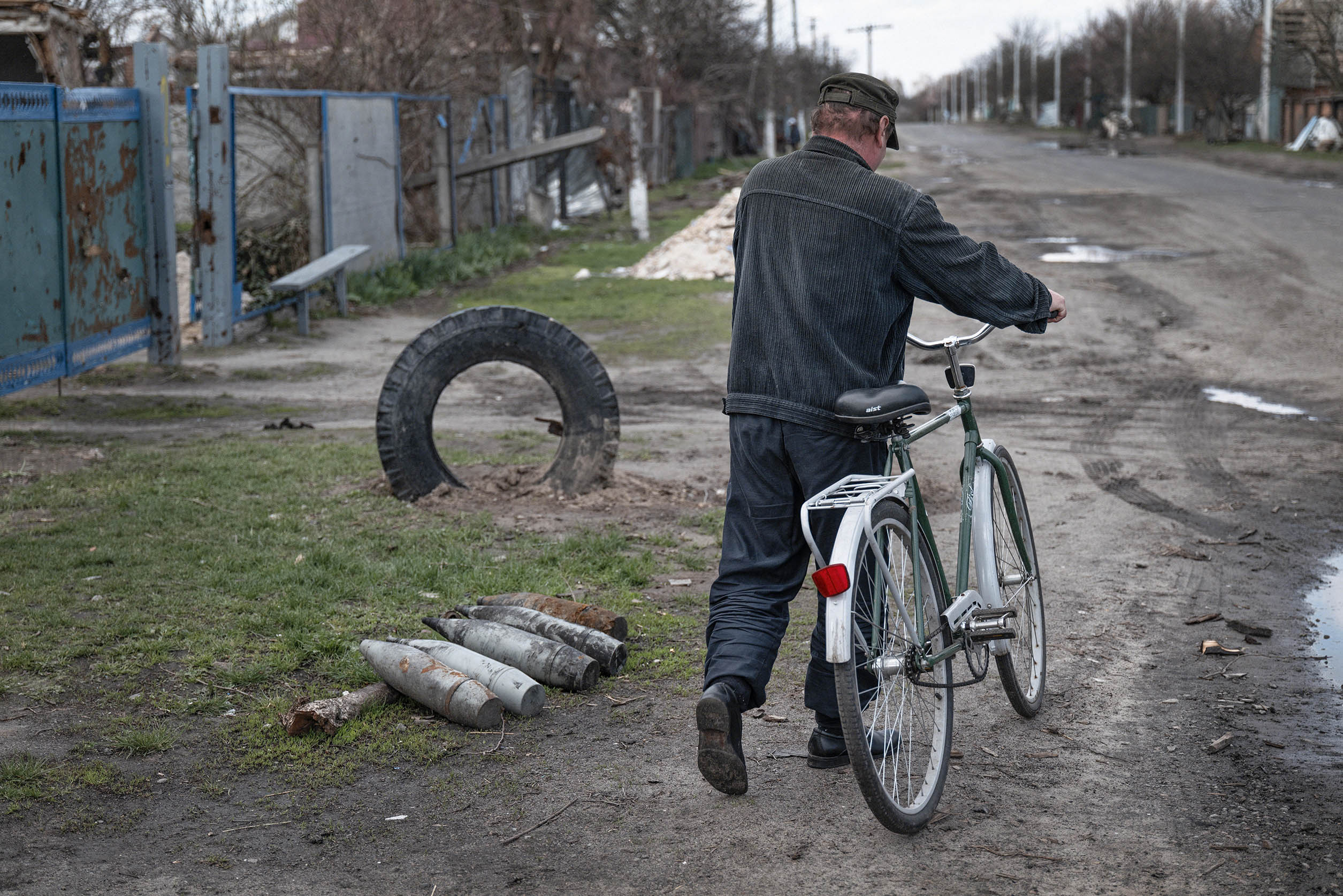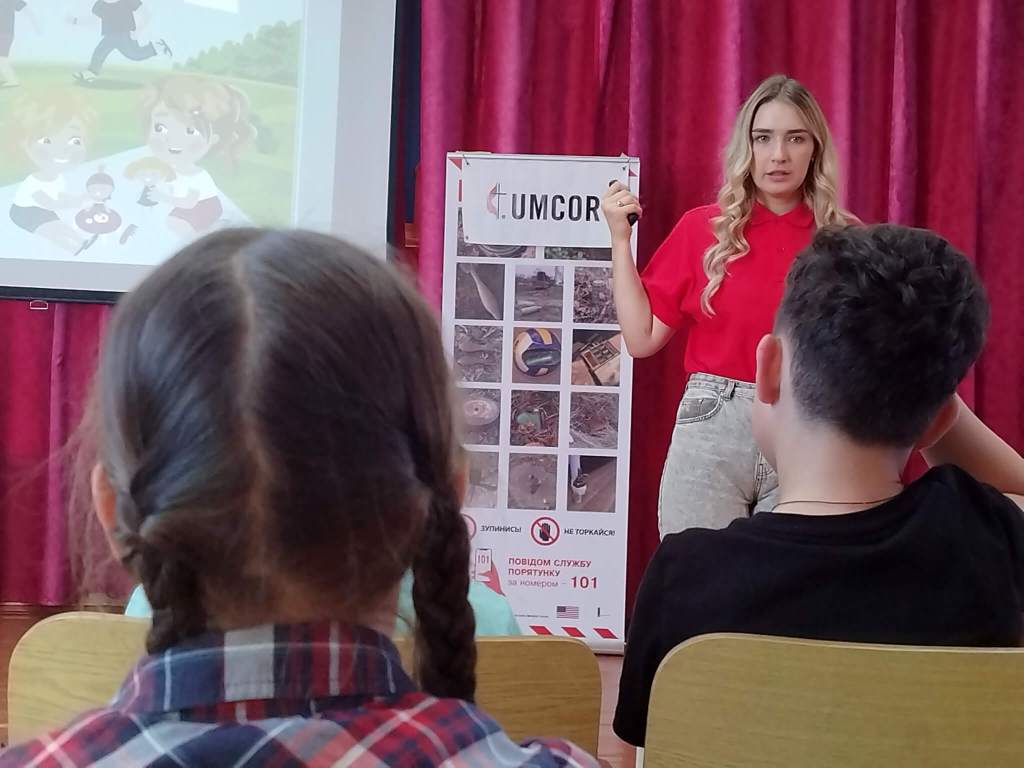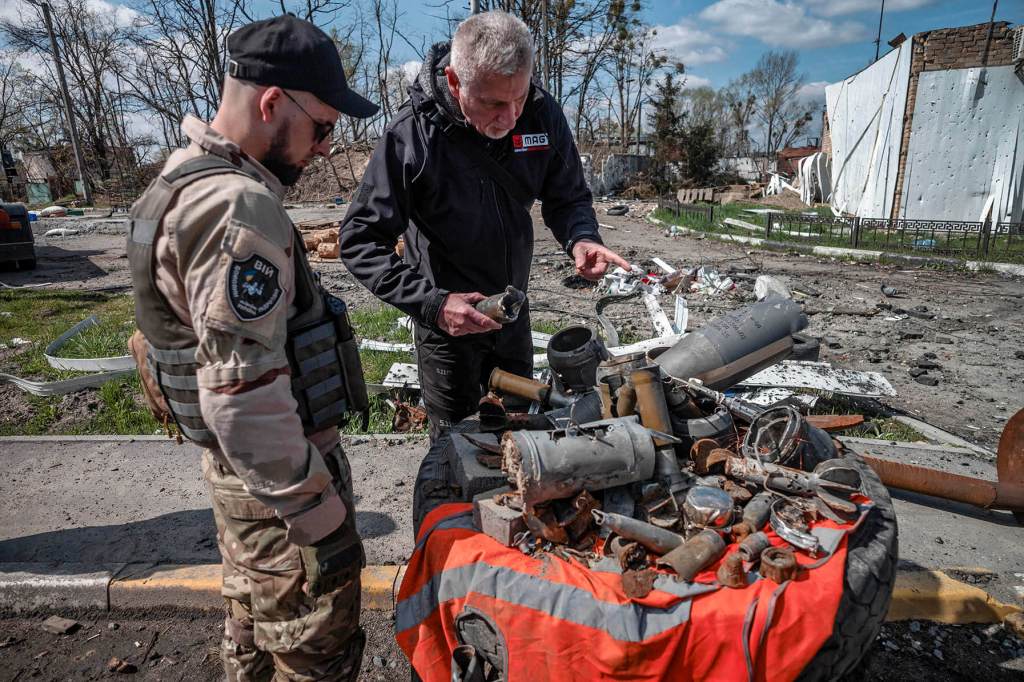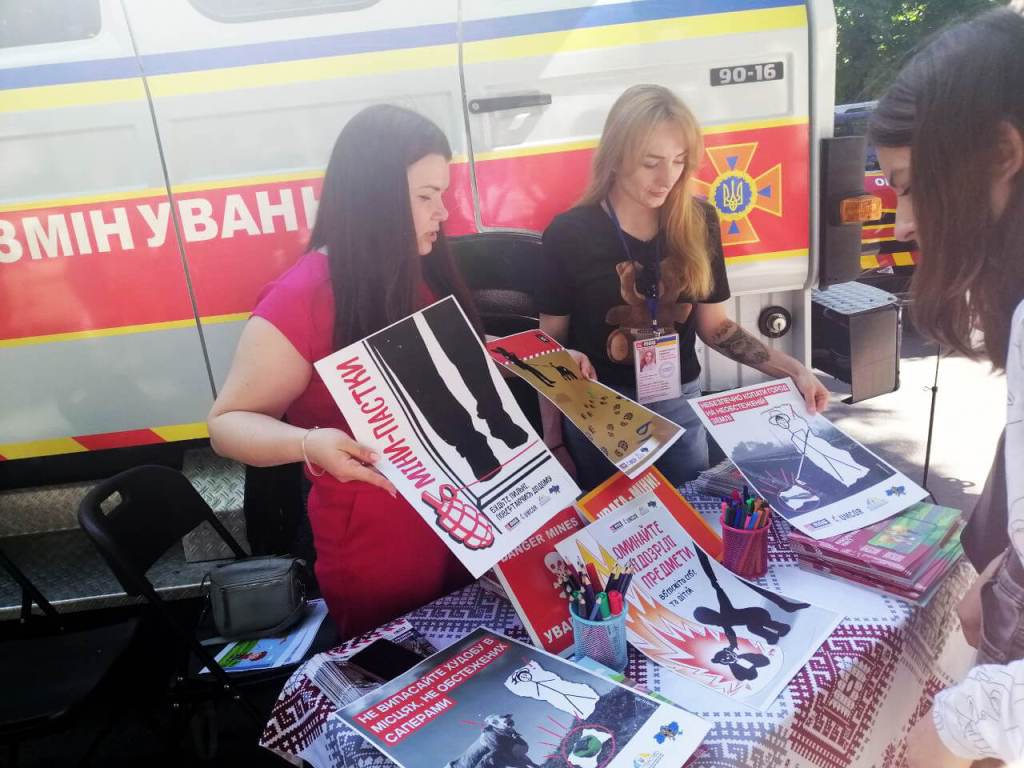The danger of mines and live ordnance in Ukraine

During the current Russian invasion, Ukraine has become one of the most heavily mined regions in the world. Eleven of Ukraine’s 27 regions are covered with mines, according to Human Rights Watch. About 30% of Ukraine’s territory is affected, and nearly a thousand civilians have lost their lives by inadvertently detonating mines and all kinds of unexploded ordnance on the ground.
In addition, not all the bombs and rockets explode on contact, so they remain armed and dangerous, even in pieces. A particularly heinous weapon is designed to detonate hours or even weeks after it is launched, about the time people think the coast is clear.
In 2022, shortly after the war began, the United Methodist Committee on Relief (UMCOR) joined trusted partner Mines Advisory Group (MAG), a nonprofit agency of the United Kingdom, to support mine and unexploded ordnance risk education. Ukrainians have not had dangerous ordnance on this scale for more than 75 years since their lands were a battleground during World War II.
“The warning signs were extremely concerning, but what really shocked me was the realization that, despite my fear, I could be unknowingly putting myself at risk because I did not know how to react in such situations,” noted a teacher who had fled from Mariupol. “It wasn’t until I attended an Explosive Ordnance Risk Education session that I gained a full understanding and increased awareness of the risks posed by explosive ordnance in our territories.”

Building a program that saves lives now and later
MAG’s objective is to enable long-term humanitarian mine activities for the benefit of communities, Internally Displaced People (IDPs) and people returning to their homes. MAG’s in-country partner is the Ukrainian Deminers Association (UDA), so experience, training and knowledge are shared with those in the country who supervise this work.
To reduce the threat posed by explosive remnants of war and landmines, MAG initiates surveys and disseminates explosive ordnance information to help those living in or returning to contaminated areas.
Beyond training professionals, people of all ages and in all areas of the country need to understand they are living in or returning to contaminated areas. Community programming that makes people aware of the risks from landmines and other deadly weapons is designed to help them adopt safer behaviors to reduce the risk of accidents. Much of UMCOR’s support has made this possible in the region surrounding Kyiv.

Just a family gathering
The main method MAG uses for reaching community members about the dangers of explosives is through Explosive Ordnance Risk Education (EORE). The first to receive this training were Ukrainian deminers, so they could teach the course in Ukrainian to others. Many community sessions are held in schools or civic buildings, but because the war goes on, the training is offered online as well.
After a training at the Sikorsky Aerospace Lyceum of the National Aviation University in Kyiv, a teacher affirmed that right now, the risk of being blown up can be anywhere, even your own backyard. In June 2022, she and her family were outside building a fire for a barbecue. Her young grandson was standing next to her, watching the fire.

Suddenly, something exploded, and rubble and hot coals flew out of the fire. The teacher managed to push her grandson to the ground and cover him with her body.
The boy was safe, but the teacher’s hair and clothes were heavily burned, and her back was cut by flying debris. They later discovered that something lay buried under the place where the fire had been lit.
Another problem encountered by MAG has been the practice of “souvenir” collecting, even while the war is adding new “souvenirs” to the landscape. At a Polytechnic University session, where a dormitory was converted into a hostel shelter, a young man shared a story of collecting “spent” shells. He had gone to visit his relatives in Mykolaivka, but they came under Russian shelling. Afterwards, he could see “shells” of fired ammunition on the ground. The State Emergency Service staff was working nearby and confirmed that they would no longer pose a threat as they had already fired their munitions.
The young man put three of these trophies in the trunk of his car and drove them around for a while, showing them to his friends. One day he stopped at a gas station to get his car repaired. While standing at the front looking under the hood for the cause of the car’s malfunction, a huge explosion rocked the car – one of the “empty shells” in the trunk exploded.
It was a miracle that no one was injured as the people were on the opposite side of the car and protected by the open hood. The car’s windows were smashed, the trunk was turned upside down. But the young man was grateful that he was unharmed, as were other people around him. He said that if he had been trained earlier, he would have understood that there are no “used shells,” but that any explosive remnants of war must not be touched or approached. Most people have no idea that objects that look safe can explode at any time.
Many stories have been shared at the training sessions, such as a woman drawing water from her well and finding a grenade, or a few boys who found WWII ordinance and decided it could not possibly be dangerous after so many years. Sadly, two of the three lost their lives.
But thanks to the EORE project supported by UMCOR, in cooperation with MAG, Ukraine is raising people’s awareness of explosive ordnance and saving lives and limbs with the gift of knowledge, which changes their attitudes and behavior.
Christie R. House is a consultant writer and editor with Global Ministries and UMCOR.
Funding for this project was made possible by generous giving to UMCOR’s International Disaster Response Recovery, Advance #982450. Gifts to this Advance will continue to impact lives in positive ways.
International Disaster Response and Recovery
Founded in 1940, the United Methodist Committee on Relief (UMCOR) is the global humanitarian relief and development agency of The United Methodist Church. A part of Global Ministries, UMCOR works in more than 80 countries worldwide, including the United States and its territories. United Methodist Committee on Relief International Disaster Response and Recovery (UMCOR IDR) serves as the primary channel for United Methodist assistance for disasters that strike outside of the United States.

